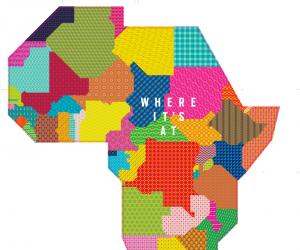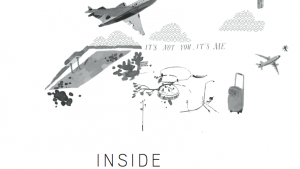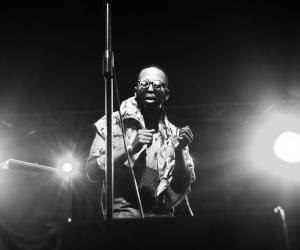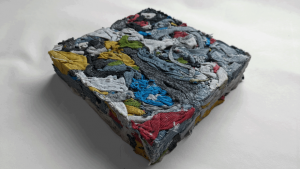Part of the Project
From the Series
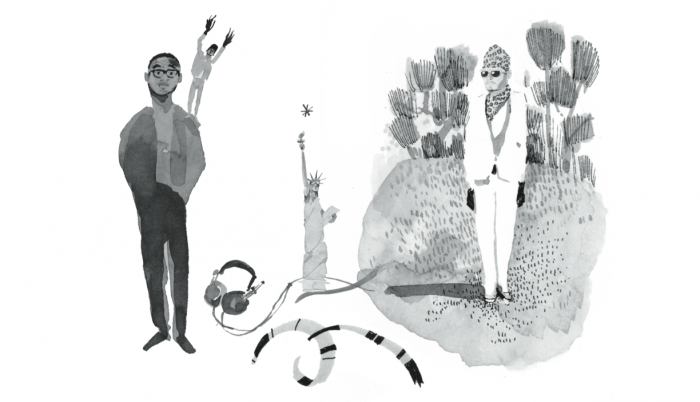
Spoek Mathambo (SM): Okay, so what influenced your decision to leave South Africa? Have you really left, or is South Africa still home base?
Xander Ferreira (XF): I suppose you could say I have more than one base. Which has been a great experience and is only getting better. Somehow random things seem to point – or rather throw – me in the direction I’m going.
What about you?
SM: I think I decided very young that Johannesburg wasn’t a place where I could see myself living and working. In high school I dreamed of seeing the world. Especially because of my interest at the time, in hip-hop, which I felt was really undervalued in South Africa, I wanted to be in places that I thought would have stuff “happening”, the real hubs of creativity.
Then, when I moved to Cape Town, the idea hit me that my art could be well received all over the world. I realised I didn’t need to be a starving South African artist moonlighting as an advertising junior designer, moonlighting as a rapper, moonlighting as the next generation of music martyrs, that I could actually get out there and do it.
XF: I feel you. I used to think that the only way to make a decent living as an artist in South Africa was to sing like Steve Hofmeyr, sell CDs to the tannies and play at high schools and church bazaars. It was good to leave South Africa and realise that people abroad were so accepting. The weirdness didn’t bother them. The “Boere Gemeenskap” didn’t bother them. I didn’t need to be Steve Hofmeyr!
SM: I think the Internet really showed me the possibilities. It allowed me to take a project/product from Johannesburg to the world, then actually go out into that world where it had become known. It made it real.
XF: That’s true – the window to the world is open to everyone. I guess they just have to climb through it.
Actually that’s how you and I connected... through the Internet. I remember I looked at what you were doing and liked that fancy haircut. So I figured, shit – I have to listen to his music. You’ve always had a wicked style. It seemed to be grounded in the same aesthetic I had been creating in. I guess those were the first steps into a visual world we share.
SM: Ja, I think that creatively South Africa is awesome and I think audiences are incredible too. 2012 is definitely the year I want to crack the South African market in a real and impactful way, so my people can at least have a chance to decide if they like the music or not.
Not that I left South Africa with that sad artist idea of not being “gotten”. I just figured I could get bigger faster outside of South Africa. I wanted to circumvent the stringent structures of who gets on radio and TV and who doesn’t. The difference overseas is that Internet access is so widely available, cheap and fast, so it’s easy to reach a bigger audience. It’s funny to think that some Kwaito, Gospel or Afrikaans rock acts don’t even consider the rest of the world as an option, and when they face struggles here they feel like there is no plan B or C.
XF: Most definitely. I think our media, especially TV and radio, are at a very interesting juncture, simply because there are so many amazing new things happening here now. In the past, so much kak was presented to us as all there is. For so long there was no commercial Afrikaans music that I would be proud to play to the rest of the world. But it’s changing; I couldn’t believe the first time I heard Jack Parow or Fokofpolisiekar’s first demo. I thought that Afrikaans people were way too conservative, that they’d never accept it.
I was completely wrong.
SM: Wroooooooong! So do you think South Africa needs your music more than anywhere else? A lot of your work is very socially conscious. You aren’t scared to have uplifting and socially conscious lyrics for instance.
XF: It is definitely one of my main aims when it comes to the larger perspective of creating songs. In South Africa we need to aspire to be positive since there is still so much struggle in the daily lives of so many of our people. So the message I hope to share starts at home and, with luck, spreads to the world. It’s important to me that we recognise the chances we get to influence people’s lives. The direction of influence depends not only on them but on what you share with them as well. I think it’s a real privilege to share my art with people all over the world, but nothing beats the acceptance of your own people.
Leaving has opened my eyes to see beyond the little world that had been home to me in the past. I find more and more magic in South Africa each time I visit. Of course there are still things I’d change. I wish each city block had a meeting point. People would be more willing to help each other if they knew each other. I’d love to see a system where we could really socialise comfortably and publically.
What do you feel about South Africa? Is there anything you’d change?
SM: The next generation of kids will be awesome. They will be free of a lot of the baggage of the past. We’ve taken such massive strides in the last two decades, I think forward is the only way. What I battle with, though, is people like us leaving or being away too often and denying laaities the chance to train with us. Giving back in terms of skills and empowerment is important. We should be there for the kids, the same way some great older South Africans were there for me.
Still, I get a big sense of fulfilment from demonstrating to the kids that you can be a total weirdo and still be fine. You know, you can do it your own way. You don’t have to conform to all the nonsense to win. And if it’s not working for you at home, move on.
XF: So do you find any harmony with the Bob Marley lyric, “If you’re not living good, travel wide”?
SM: More, “I’m like a stepping razor”... ha ha.
This conversation was originally commissioned for Where It's At, a Design Indaba publication created in collaboration with Richard Hart and disturbance design in 2012. Browse the full series here.

